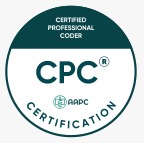In today’s ever-evolving healthcare environment, one of the most complex and demanding aspects that providers must navigate is medical billing. It’s an essential but challenging part of healthcare management that requires precision, deep knowledge, and an ability to stay up-to-date with the latest regulations and technological advances. Medical billing is not just about filing claims and receiving payments—it is the very lifeblood that keeps healthcare practices financially viable.
For independent providers, billing managers, and CFOs, choosing the most effective medical billing solution is like walking through a maze filled with mirrors. Each path appears promising, but which one truly leads to optimized revenue growth and operational efficiency? In this guide, we’ll explore two primary approaches to medical billing: in-house billing and third-party medical billing services. Both have their merits and drawbacks, but by the end of this comprehensive guide, you’ll have a clearer understanding of which solution is best suited to your practice’s unique needs.
In-House Medical Billing: The Do-It-Yourself Approach
Let’s start by examining in-house medical billing. Picture a team of billing experts working directly within your practice, fully immersed in your day-to-day operations. Having a dedicated in-house billing team might seem like the ideal situation. After all, they are your employees, and you have complete control over how they manage your revenue cycle. But is this approach as flawless as it seems?
The Advantages of In-House Billing
- Direct Control and Oversight One of the biggest appeals of in-house billing is the level of control you maintain over your billing operations. You have immediate access to your team and can oversee their work closely. Performance monitoring is easier, and adjustments can be made on the fly to ensure your processes align with the practice’s standards and policies.
- Immediate Communication When you handle billing internally, there is a natural advantage of faster communication. If there’s an issue with coding, payment posting, or denied claims, you can walk over to your billing team and address the issue immediately. This real-time problem-solving can reduce delays and ensure issues are addressed before they snowball.
- Customization and Flexibility In-house billing allows you to tailor processes to fit the specific needs of your practice. Whether it’s integrating the billing system with your existing electronic health record (EHR) platform or implementing particular protocols that suit your practice’s requirements, an in-house team can quickly adapt without needing to go through external channels.
The Challenges of In-House Billing
- High Operating Costs Running an in-house billing department is far from cheap. Beyond salaries, you have to account for employee benefits, ongoing training, workspace, and billing software upgrades. Medical billing regulations are constantly evolving, and keeping up with the latest compliance requirements often means investing in costly training and certifications for your staff.
- Scalability Limitations As your practice grows, your billing needs will inevitably increase. Scaling an in-house billing team requires careful planning and financial investment, which can be burdensome. Larger teams mean more space, more equipment, and higher overall costs, which could erode your profit margins.
- Staff Turnover and Continuity Issues The departure of key billing personnel can significantly disrupt your operations. Billing errors, claim delays, and overall inefficiencies often increase when staff turnover is high, which can cause costly revenue losses. Training new employees to the level of proficiency required for effective billing management takes time and resources.
Third-Party Medical Billing Services: The Outsourcing Advantage
Now, let’s shift focus to third-party medical billing services. Outsourcing your billing operations to a specialized firm can offer numerous advantages, especially for practices looking to scale, reduce overhead, or tap into expert resources. Third-party billing companies are dedicated to managing every aspect of revenue cycle management, providing tailored solutions to maximize reimbursement and minimize errors. But is this option as straightforward as it appears?
The Benefits of Outsourcing Medical Billing
- Cost Efficiency One of the most compelling reasons to outsource billing is cost savings. When you partner with a third-party billing service, you avoid the expenses associated with hiring, training, and retaining in-house staff. Additionally, outsourcing eliminates the need to invest in costly billing software and technology infrastructure. For smaller practices, this can make a significant difference to the bottom line.
- Expertise and Compliance Third-party medical billing companies specialize in RCM, meaning their teams are composed of highly skilled professionals who are up-to-date with the latest industry regulations, coding standards, and payer requirements. This expertise drastically reduces the chances of coding errors, claim denials, and compliance breaches, ensuring your practice remains compliant with federal and state laws.
- Scalability and Flexibility One of the biggest advantages of outsourcing billing is its scalability. Whether your practice is expanding, experiencing seasonal fluctuations, or downsizing, a third-party billing company can easily adjust its services to accommodate your needs. There’s no need to worry about hiring additional staff or managing fluctuating workloads.
- Access to Advanced Technology Outsourced billing companies often leverage state-of-the-art software and analytical tools that may be out of reach for many in-house teams. These technologies enable faster, more accurate billing processes, leading to quicker payments and improved cash flow. Additionally, many third-party firms offer data analytics and reporting that provide actionable insights into your practice’s financial performance, helping you identify areas for improvement.
The Drawbacks of Outsourcing Medical Billing
- Less Direct Control While outsourcing has many benefits, it comes at the cost of relinquishing some control over your billing processes. Communication might not be as immediate as with an in-house team, and any delays in addressing issues could affect claim submission times and revenue flow.
- Potential for Miscommunication Working with an external team introduces a risk of miscommunication. While third-party billing companies strive to work in alignment with your practice’s specific needs, there may still be challenges in ensuring they fully understand the intricacies of your operations, patient demographics, and billing preferences.
- Trust and Reliability Handing over your revenue cycle management to a third-party provider requires a great deal of trust. You must be confident that your chosen partner is reliable, transparent, and capable of handling sensitive patient information and financial data securely. Vetting potential third-party firms thoroughly is crucial to ensuring a successful partnership.
Key Factors to Consider When Choosing a Medical Billing Solution
Whether you opt for in-house billing or third-party services, several critical factors should influence your decision. Here are some points to keep in mind:
- Practice Size and Volume A smaller practice may find it more cost-effective to outsource billing rather than bear the expense of maintaining an in-house team. However, larger practices with high claim volumes might benefit from the flexibility of an in-house team that can address issues in real-time.
- Budget and Cost Analysis Consider the long-term financial implications of each solution. In-house billing comes with higher overhead costs, but you retain full control. Outsourcing might save money upfront, but it’s essential to factor in the ongoing cost of service fees and potential quality control measures.
- Technological Integration Ensure that any billing solution, whether in-house or outsourced, integrates seamlessly with your practice’s EHR system. Efficiency and accuracy are paramount, and the smoother the transition of data between systems, the better your overall billing performance will be.
- Regulatory Compliance Staying compliant with industry regulations is a full-time job. Whether your billing team is in-house or outsourced, ensure they have the necessary expertise to stay current with the ever-changing healthcare laws, such as HIPAA and the Affordable Care Act.
Transitioning to a Third-Party Billing Service: When Is It Time?
Deciding to switch from in-house billing to third-party services is not a decision to be taken lightly. However, there are several indicators that may signal the right time for a transition:
- Rising operational costs are eating into profits, making in-house billing unsustainable.
- Increased claim denials and coding errors have led to delayed payments and revenue losses.
- Difficulty scaling your in-house team to meet growing billing demands.
- Staff turnover is causing inefficiencies and disruptions in the billing process.
Conclusion: Making the Best Choice for Your Practice
Choosing between in-house billing and third-party services is a critical decision that can significantly impact your practice’s financial health. While both solutions have their pros and cons, the right choice ultimately depends on your specific needs, resources, and long-term goals.
At MBS360, we understand that medical billing is the backbone of a thriving healthcare practice. Our team of seasoned experts is dedicated to providing tailored RCM solutions that streamline your billing processes, reduce claim denials, and ensure you receive the maximum reimbursement for your services. Whether you’re considering transitioning to outsourcing or optimizing your in-house operations, we’re here to guide you every step of the way.
Don’t let medical billing complexities hold you back—partner with MBS360 today and take control of your revenue cycle management for long-term success.








